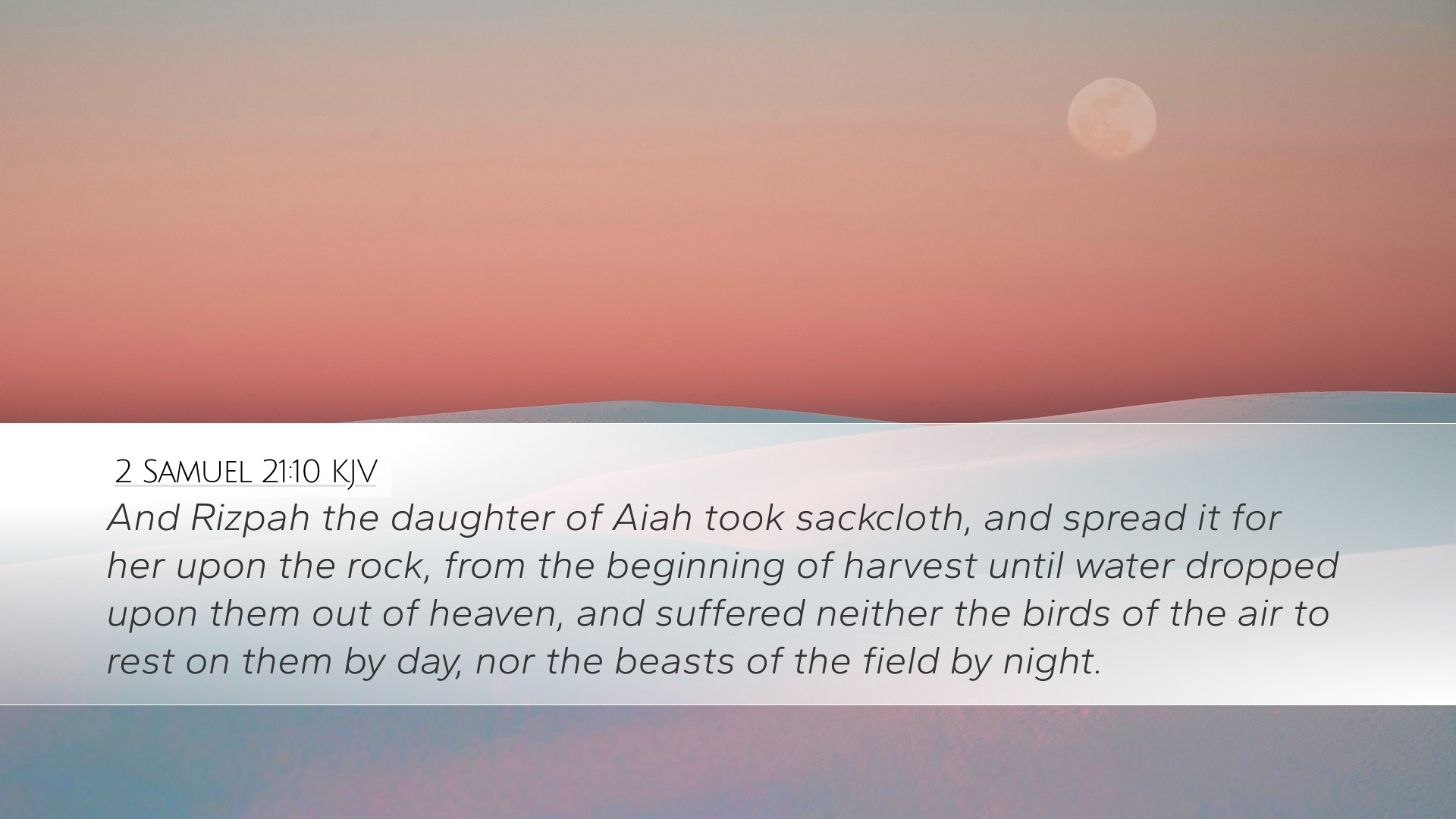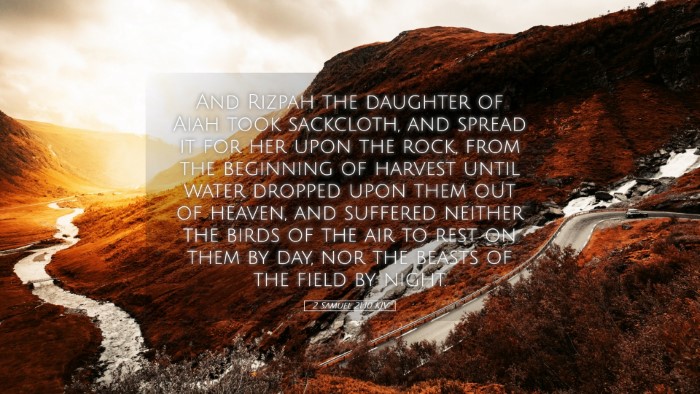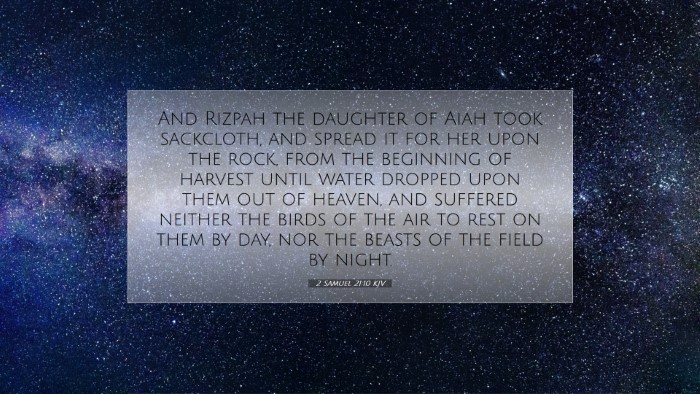Commentary on 2 Samuel 21:10
Verse (2 Samuel 21:10): "And Rizpah the daughter of Aiah took sackcloth, and spread it for her upon the rock, from the beginning of harvest until water dropped upon them out of heaven, and suffered neither the birds of the air to rest on them by day, nor the beasts of the field by night."
Introduction: This verse encapsulates a poignant moment in Israel's history, revealing deep themes of mourning, justice, and the social implications of individual actions in the face of national calamity. It brings to the forefront the figure of Rizpah, a mother whose actions demand attention and reflection from scholars, theologians, and pastors alike.
Contextual Background
The events surrounding 2 Samuel 21 occur during a time of drought and famine, seen as divine punishment for Saul's actions against the Gibeonites. David, in seeking to atone for these horrors, decides that justice must be rendered, leading to the execution of Saul's descendants. Herein lies the tragedy; Rizpah, as a mother, stands as a symbol of maternal love and human sorrow amidst political strife.
Analysis of Key Themes
Mourning and Grief
Rizpah’s act of taking sackcloth and spreading it upon a rock signifies her mourning not just for her sons but for the injustice they suffered. Matthew Henry points out that her mourning was intense, as sackcloth is a traditional symbol of grief in ancient Israel. This would be an important lesson for pastors, emphasizing the human capacity for deep sorrow, and the legitimacy of such feelings before God.
Maternal Sacrifice
Rizpah's actions demonstrate profound maternal instincts. She guards the bodies of her sons, ensuring they are not desecrated by birds or beasts. Adam Clarke notes the significance of her vigilance, portraying Rizpah not only as a grieving mother but as a protector against dishonor. This aspect can serve as a meaningful illustration for students and theologians on the lengths to which one may go to honor the dead and resist social injustice.
Justice and National Responsibility
The relief of Rizpah's predicament can also be viewed against the backdrop of national responsibility. David's decision to execute Saul's descendants was made to quell the famine, but the resulting grief illustrates the complexities of justice. Albert Barnes comments on the broader implications of David’s actions, emphasizing that while justice is necessary, it must be tempered with mercy and wisdom. This duality provides a profound discussion point for pastoral application regarding community accountability and the consequences of collective sin.
Historical and Cultural Insights
Understanding the historical setting of Rizpah’s actions sheds light on the cultural practices regarding burial and honor in ancient Israel. The exposure of bodies was a significant issue, as it represented a deep disrespect, and the act of ensuring their dignity was paramount. Matthew Henry remarks that Rizpah's enduring vigil for months not only reflects her devotion but also illustrates her rejection of societal apathy towards death and injustice.
Spiritual and Theological Implications
Theologically, this passage invites reflection on God’s justice, human suffering, and the hope for redemption. Rizpah’s sacrifice serves as a typology of Christ's own sacrificial love. Adam Clarke aligns Rizpah’s commitment with God’s unwavering care for His people, espousing a vision of a God who listens to the cries of those grieving.
The Hope of Resurrection
While Rizpah’s earthly honor of her sons seems to encounter despair, this can lead into discussions on the hope of resurrection. The New Testament brings forth the promise of eternal life, which can be linked to Rizpah’s actions in a redemptive context. Her unwavering vigil invites reflection on the eternal nature of life and the comfort found in faith.
Conclusion
In conclusion, 2 Samuel 21:10 serves as a microcosm of the broader themes found throughout Scripture regarding justice, grace, and the human condition. A careful exegesis of this verse reveals a wealth of insights that are applicable not just in historical or literary senses but also in contemporary spiritual life. By examining the principles showcased in Rizpah's life, pastors, students, and theologians are encouraged to engage with the text, allowing it to inform their understanding of grief, justice, and divine love.
Reflection Questions
- What does Rizpah’s story reveal about the nature of justice and mercy in contemporary society?
- How can we as a community honor those who have experienced injustice in our world today?
- In what ways does Rizpah remind us of the sacrificial love of Christ?
- How can mourning lead to action in the face of social issues?


